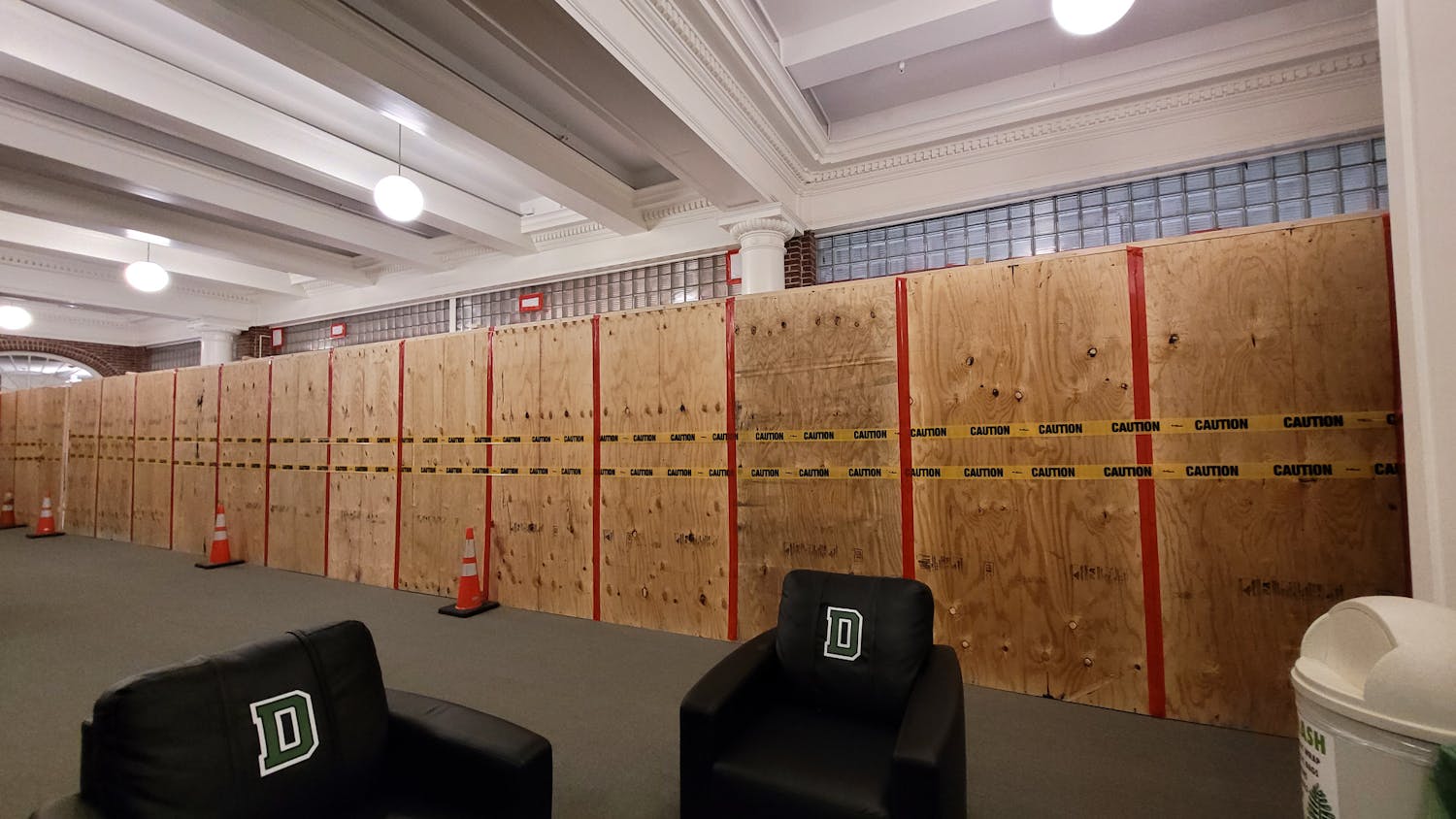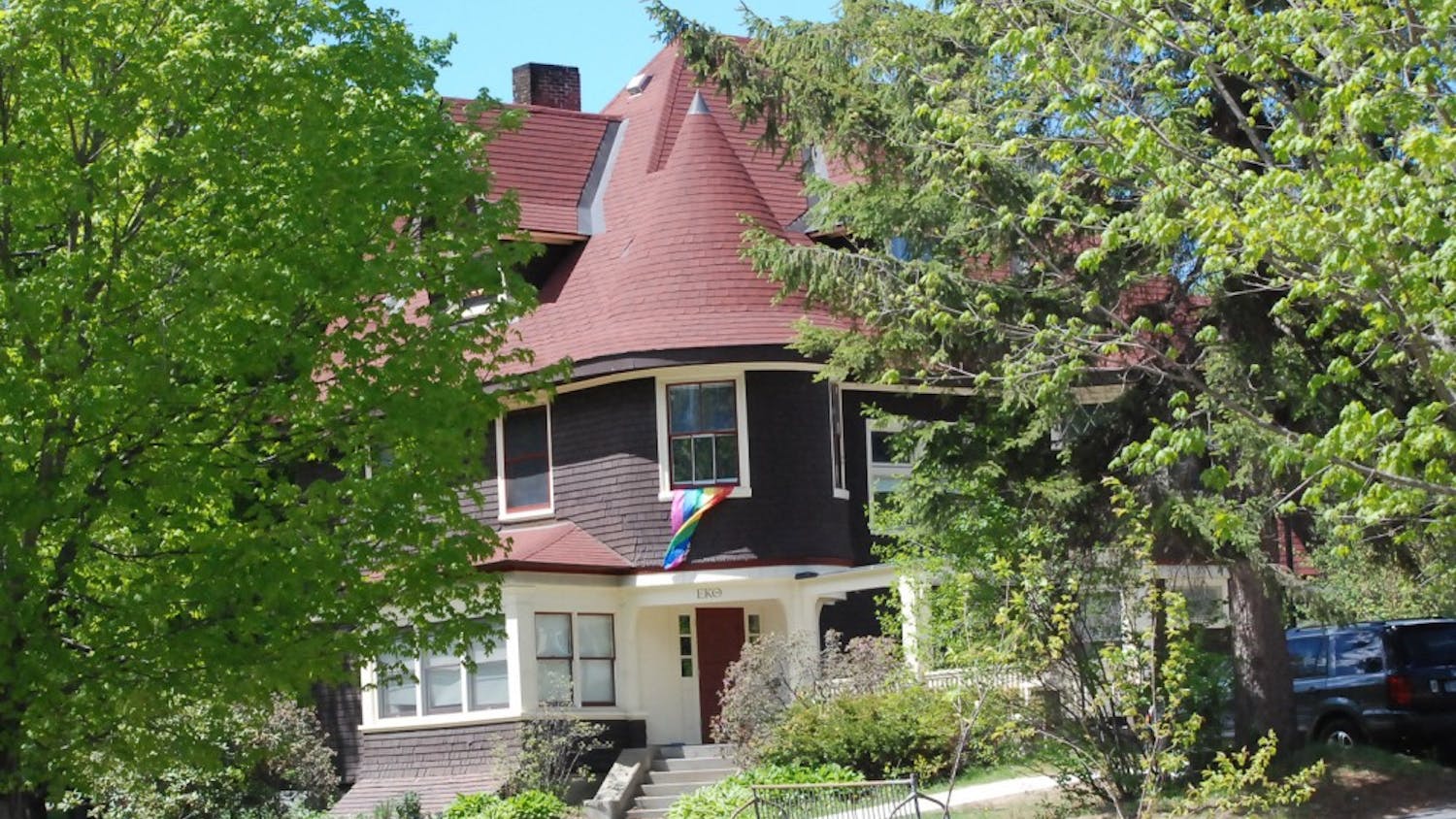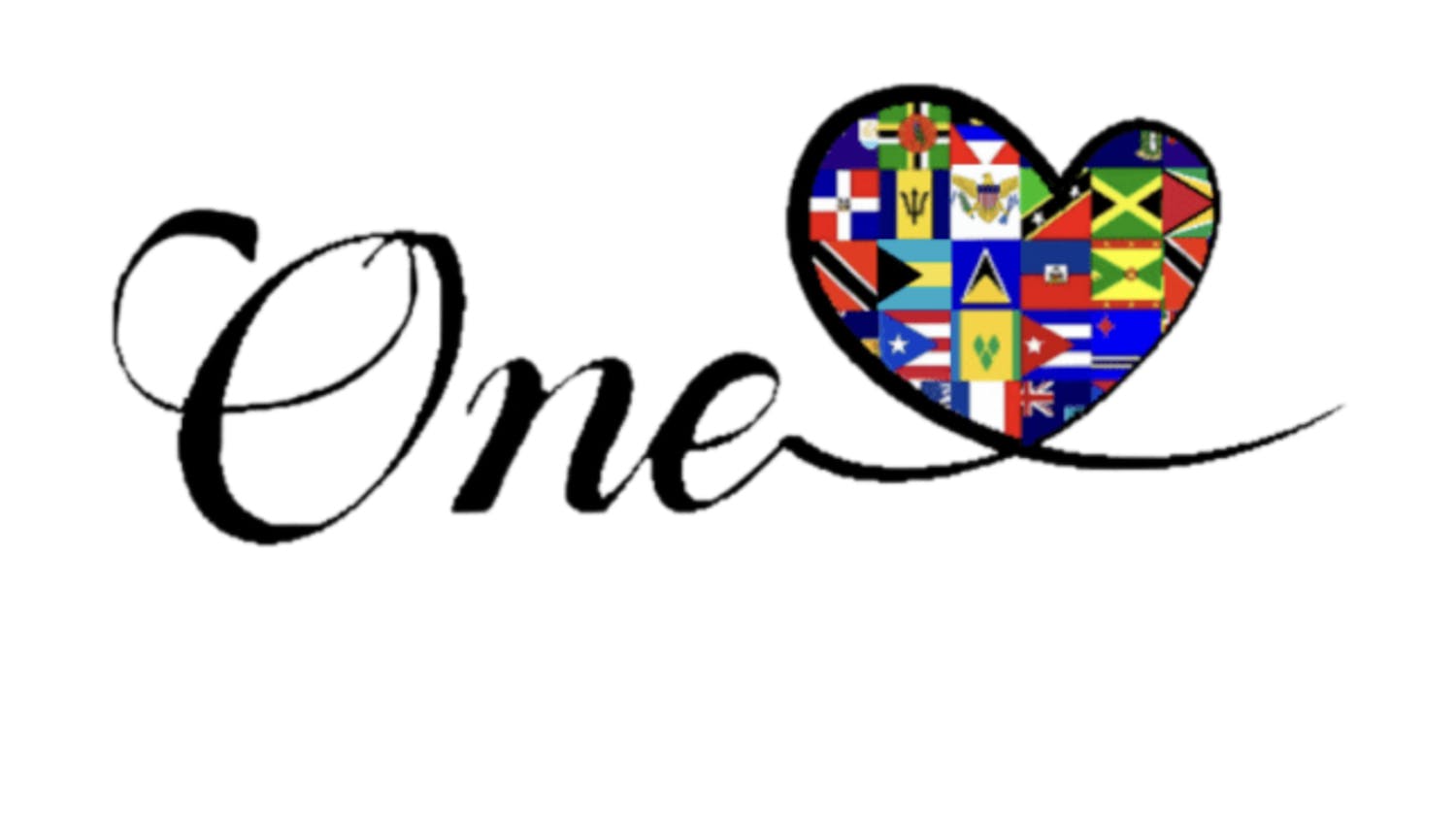After delivering his speech to a packed Alumni Hall, Rev. Al Sharpton sat down with The Dartmouth to discuss what the Democrats did wrong in 2004, what they should do in 2008, being the most comedic candidate on stage and possibly starring in a sitcom -- but only after he finished talking with Jesse Jackson on his cell phone for some time.
The Dartmouth: First, I'm going to get this out of the way. When do you think you are going to announce whether you will run for president in 2008, and if so, would you like to do it in The Dartmouth today?
Al Sharpton: [Laughter.] Well, I won't decide that until after the '06 midterm elections. I think until the Democrats can show that we are able to revive the party and win that it's completely selfish, and in many ways silly, that we're going to run in '08 given all these opportunities to show some progress.
The D: In a recent television interview, Morgan Freeman said he opposed Black History Month and said to end racism, people must stop talking about it. Do you think this is the way to end racism?
Sharpton: I think what he was talking about was let's quit dividing each other by language. I think that we have to discuss racism. And I think that black history was formed because it was omitted. It was a remedy for omission, not trying to divide. I understand what Morgan Freeman was saying and I respect him but I do not think that by not talking about racism it's going to go away anymore than if you had a headache you're not discussing it doesn't mean it stops. Somebody needs to medicate it, and I think we've got to deal with [racism], and I think we've got to have more honest discussion and more honest resolution. Just ignoring it will not make it stop in and of itself.
The D: The New Hampshire primary establishes the primacy of certain Democratic candidates, but the state is not representative of American Democrats. Do you think it should continue to be the first presidential primary in the nation?
Sharpton: There's a commission report that has come out that I have not seen. I'd like to see that report. There's some opposition right now, but I will say I was treated fairly in New Hampshire when I ran. Now I'm more concerned about the abbreviated primary season after New Hampshire where we almost have this rapid-fire primary season. We never give voters time to learn the candidates, and [the candidates] time to really form a structured and formal campaign in each state.
The D: In your speech, you said it doesn't matter how Democrats lost in 2004; the fact is they lost. But with your campaign specifically, which ended with lots of debt and unpaid staffers, what could you have done better?
Sharpton: We could have raised more money. I think that our financial troubles were no worse than most of the other candidates. You'll remember John Kerry had to mortgage his house at one point. I think that we could have raised more money but I think with an abbreviated calendar and not [because of a lack of] money, we could not do what we needed to do. If I run again, I would start earlier raising money and I would start earlier working on state organizations to help.
The D: You've certainly been one of the more funny, humorous politicians, but do you ever worry you might be taken less seriously because of that?
Sharpton: I think what I've tried to do is use wit and humor to bring home points. I also knew that the right-wing media would try to paint me as a hatemonger, an evil guy. And I wanted to use humor for people to say, "This guy is not hateful. This guy, he has a sense of humor." So you run the risk of what you say in the question, of being taken less seriously, or you run the risk of being painted as some hatemonger who just wants to do unpatriotic things and it's a thin line I've had to walk, But so far I think I've maintained the balance.
The D: If Dr. Martin Luther King, Jr. were alive today, what do you think he'd have to say about the current state of politics and race relations in the U.S.?
Sharpton: He would probably be sad to see that we still have the gap in median income level, black and white in the country, still about 26 percent. He would still see a system that is unfair and unequal to blacks. He would be sad to see the education gap. And he certainly would be heartbroken to see the engagement in Iraq. I think he'd be encouraged, though, to see that there has been some progress and there have been some fruits born from his labor -- blacks in high office, both in the corporate world and the political world. But I think he would challenge us to finish the work and not just rest on the laurels of some successes.
The D: In 2008, what do you think will be the main issues driving the campaign?
Sharpton: The economy. The economy will drive the debate. I think that by then we may have had one or two very serious Supreme Court decisions and the possible robbery of our civil rights, be it for women or for affirmative action. That will drive a lot of the campaign. And I think our infrastructure and development -- we are still facing some natural disasters, Katrina may only be one of them, and that's going to be a major issue in 2008, and I think they ought to drive the campaign.
The D: Do you think race played a role in the lack of government response to Hurricane Katrina?
Sharpton: I think race played a role. Whether it was by commission or omission, it doesn't matter. What do I mean by that? Do I think that Bush and his administration sat somewhere and said, "They're black, don't worry about them?" Maybe, maybe not. Do I think the fact they were black and poor meant they didn't take it as seriously and become as concerned because it wasn't their core constituency? I think that's more likely. So whether you're hit by a car going forward or whether a car backs into you by accident, either way you're on the ground bleeding.
The D: A lighter question: you were in talks with CBS to star in your own sitcom, "Al in the Family," but I understand this isn't happening any more. Why not?
Sharpton: What I said was that I would not mind doing a show with CBS if it was serious. But I'm not interested in being a black Archie Bunker. Archie Bunker was a bigot. I'm not a bigot. Archie Bunker is not someone I want to counter. George Bush is who I want to counter.



